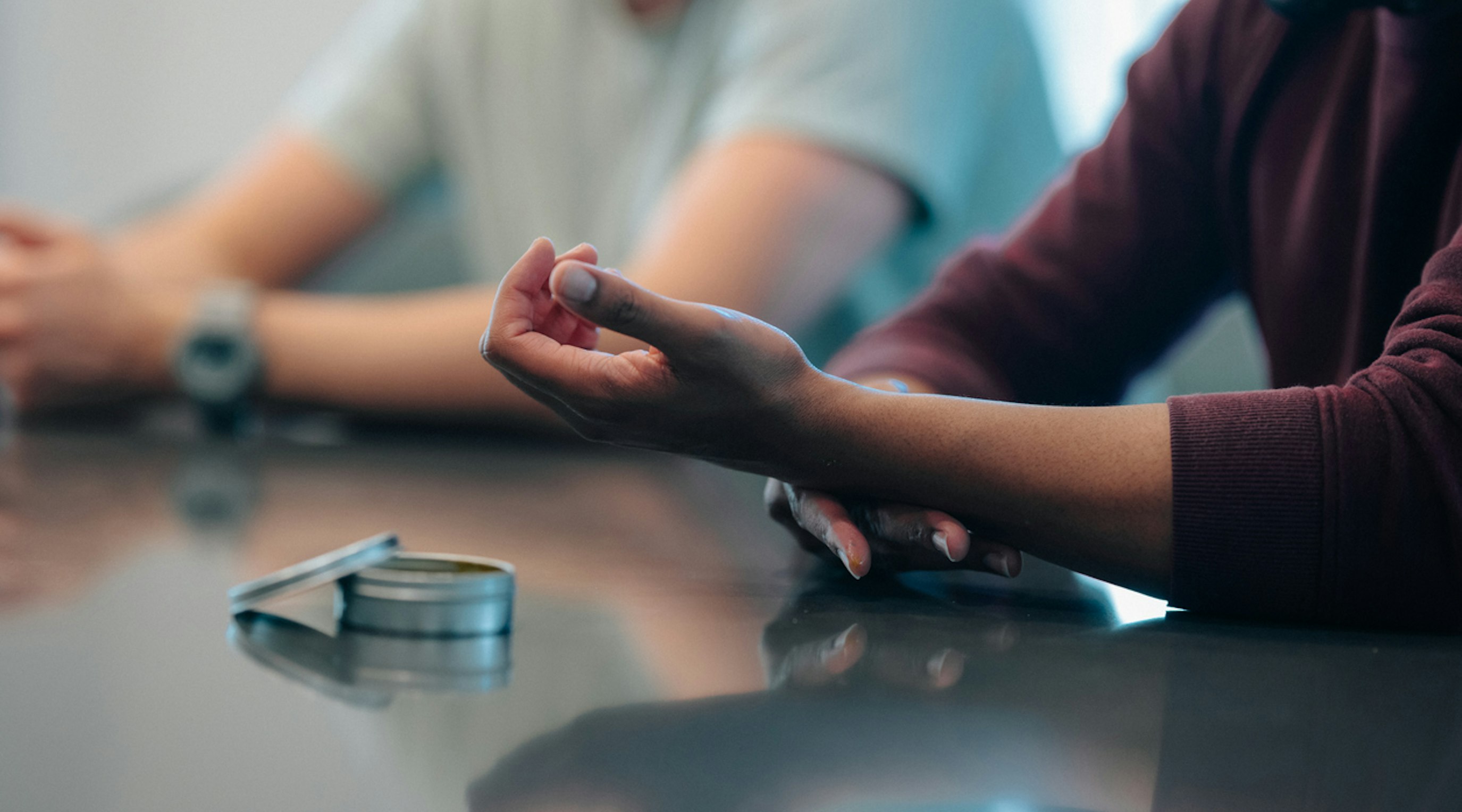Do cannabis topicals really work?
7 min read
Editorial Team
Contents
The skin holds a huge amount of cannabinoid receptors, and as such, skin application of medicinal cannabis topicals is a great way of utilising the properties of phytocannabinoids. Phytocannabinoids are cannabinoids produced outside the human body, and include tetrahydrocannabinol (THC) and cannabidiol (CBD), found within the cannabis plant.
Cannabis topicals have been applied traditionally in herbal medicine for hundreds of years, if not longer. Let's have a look at what cannabis topicals are, how they work and how to get the best out of them.
What are cannabis topicals?
Cannabis topicals are medical and healthcare products that may be effective at treating a number of different ailments and conditions relating to pain, inflammation, skin conditions, injuries, and trauma or autoimmune diseases. They use a natural or synthetic base to infuse cannabis extracts and isolates in order to be absorbed into the skin tissue and then delivered to the endocannabinoid receptor sites contained in the skin. They can be creams, balms, ointments, or sprays.
What are cannabis topicals applied for?
Pain and inflammatory diseases or injuries like arthritis, osteoarthritis, rheumatoid arthritis, fibromyalgia, and sports injuries are among the main reasons patients administer cannabis topicals, but there are a number of skin conditions that topicals may aid too. Eczema, psoriasis, contact dermatitis, acne vulgaris and alopecia have all shown the potential to be helped with cannabis topicals in clinical and human trials.
Do people really have good results with cannabis topicals?
There have been some very encouraging results in clinical studies with both CBD and THC topicals, with more research being conducted on CBD than THC at this point. THC research is increasing, just at a slower rate, and this is due to the legal standing of THC in many countries. Laws prohibiting the possession of THC have inhibited medical research and treatment development progress.
On the other hand, as CBD is non-intoxicating, many of the restrictions placed on THC research do not apply. The CBD skincare market is estimated to grow from £1.02 billion in 2023 to over £6 billion by 2030.
How do cannabis topicals work?
The research suggests that medicinal cannabis topicals work because cannabinoids THC and CBD interact with the endocannabinoid receptor sites on and underneath the surface of the skin. When these cannabinoids reach receptors CB1 and CB2, they may trigger the signalling of messages that down-regulate both pain and inflammation signalling, switching their action from pro-inflammatory to anti-inflammatory.
Inflammation is the driving force behind almost all pain. Whilst THC has shown potential to target both pain as an analgesic and inflammation, CBD acts mainly on inflammation and immune response. There are receptor sites, other than those related to the endocannabinoid system, that CBD and THC can have an action on including G-protein coupled receptor GPR55, vanilloid receptor TRPV1, the 5-HT1a receptor and the a3 a1 glycine receptors. So cannabinoids may both help to reduce inflammatory pain and make pain more tolerable.
How long do cannabis topicals take to work?
Most people report effects of CBD can be felt around 30 minutes from application. Some people notice effects taking place after 10 minutes, but in a number of cases it can take up to 45 minutes to an hour. What we are getting at, is that there is no conclusive evidence of cannabis topicals working within a specific timeframe, just that most patients report feeling the effects within 45 minutes.
You should always discuss dosage and frequency with a medical professional before beginning topical application. If you are worried about the correct dosage and timing or are having problems finding the right strength product or dosage regime, then fear not. Here in the UK, only certain doctors are registered and qualified to prescribe medicinal cannabis products. This ensures that you receive top-level, up-to-date advice.
In the case of skin conditions with itchy irritations, cannabis topicals may provide relief almost instantly. There are indications that, with long-term exposure to medicinal cannabis topicals, damaged skin may heal more quickly than if no treatment is applied.
How much cannabis topical do I apply?
Cannabis topical application can reach a saturation point where the skin no longer absorbs more THC or CBD, so heavy application is not always necessary. In fact, small quantities are more recommended. A thin even layer coating the surface of the skin gently massaged in is all that is usually required. So, go easy when applying medical cannabis topicals, and always adhere to the prescribing doctor's instructions.
How long do the effects of cannabis topicals last?
That really depends on the reason why you are applying cannabis topicals.
- If you are applying it to maintain analgesic effects and relieve pain in joints and muscles, then you may be instructed to reapply the product every three to four hours.
- For skin conditions, the severity of a specific flare-up may relate to the frequency of application. For anti-itching properties, it may be a case of using cannabis topicals as often as needed to relieve the distress. For acne and damaged skin, applications of one to two times a day have shown positive results.
It might be beneficial to time from the moment you apply the cannabis topical to the moment you start noticing symptoms again, so you know how often you will be required to apply the treatment in a day. You may also use this information to time the application correctly to avoid any breaks in symptom relief.
At the time of writing, there is simply not enough information on how long after discontinuation of cannabis topicals non-pain symptoms begin to reappear, so it is advised to pay close attention and keep a journal. This will aid you, and your prescribing doctor, in working out the best application regime for your specific needs.
How can I access cannabis topicals?
Cannabis topicals are becoming increasingly available. While there are CBD products available over the counter, we do still suggest consulting with a physician that is registered and qualified to prescribe medicinal cannabis. They will be able to provide you with the best level of care.
For THC-infused cannabis topicals, a prescription is a necessity.
How do I know my cannabis topicals are authentic?
One of the downsides of over-the-counter CBD products is that, up until now, the regulation of the sector has been (at least somewhat) lacking. There have been many cases where cannabis products on the shelves have not been effective due to misleading information displayed on the packaging.
Reputable companies will always offer certificates of analysis, which should be available on their website, as well as clearly labelling how much CBD or THC is in the product. If you are prescribed a cannabis topical, you can be sure that what you are using is trustworthy. The medicinal cannabis sector is much more heavily regulated, and it is due to this regulatory framework that medicinally prescribed cannabis products will always come with third-party lab testing and honest labelling.
Conclusion
Cannabis topicals are becoming an increasingly popular option for those hoping to relieve conditions such as joint and muscle pain, skin irritations, itchiness and acne. The effects of cannabis topicals are usually felt fairly quickly, but the duration of their effects varies depending on the type of topical being applied, and the severity of the condition being treated.
When using a prescribed cannabis topical (which we strongly recommended above over-the-counter options), be sure to adhere to the advice and instructions given by your doctor, as this will ensure that you are getting the most benefit from your treatment.
Don't let the stigma surrounding medical cannabis prevent you from getting a suitable treatment. Releaf provides tailored monthly packages, specialist consultations for medical cannabis, and a unique medical cannabis card for protection, all based on your medical cannabis prescription.
Share article
Did you like this article?
It is important to seek medical advice before starting any new treatments. The patient advisors at Releaf are available to provide expert advice and support. Alternatively, click here to book a consultation with one of our specialist doctors.
Elevate your wellness with medical cannabis
Get comprehensive care, convenience, and confidence with an all-in-one treatment plan.
Am I eligible?Authors
Editorial Team
Article written by the Releaf Editorial Team, a group of seasoned experts in cannabis healthcare, dedicated to enhancing awareness and accessibility in the field through their wealth of knowledge and experience.
Editorial Policy
All of our articles are written by medical cannabis experts, guided by strict sourcing guidelines, and reference peer-reviewed studies and credible academic research. Our expert clinical team and compliance specialists provide valuable insights to ensure accuracy when required. Learn more in our editorial policy.
Need more help?










